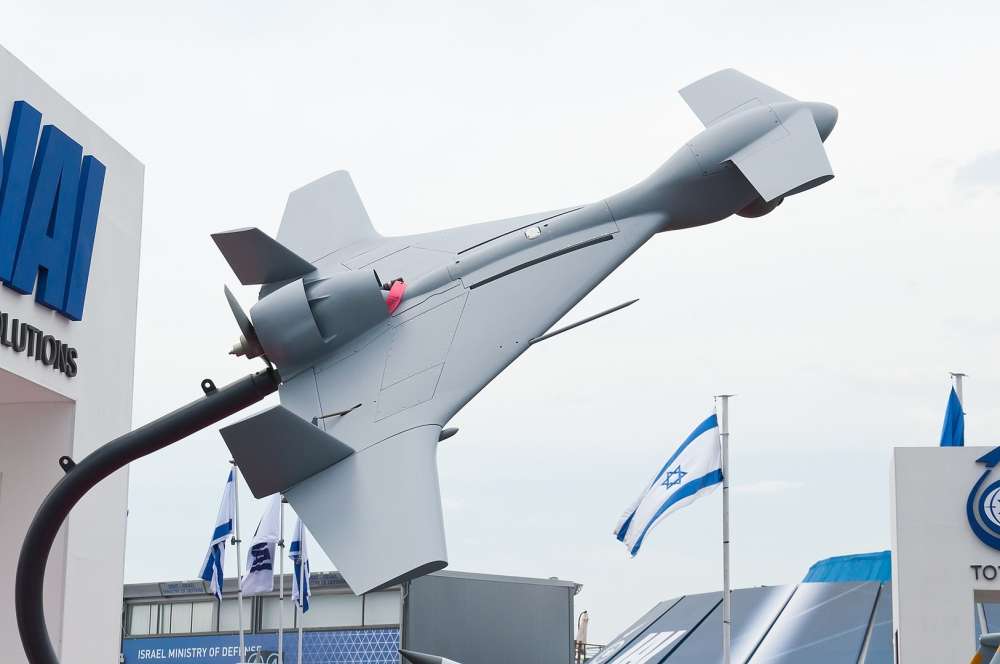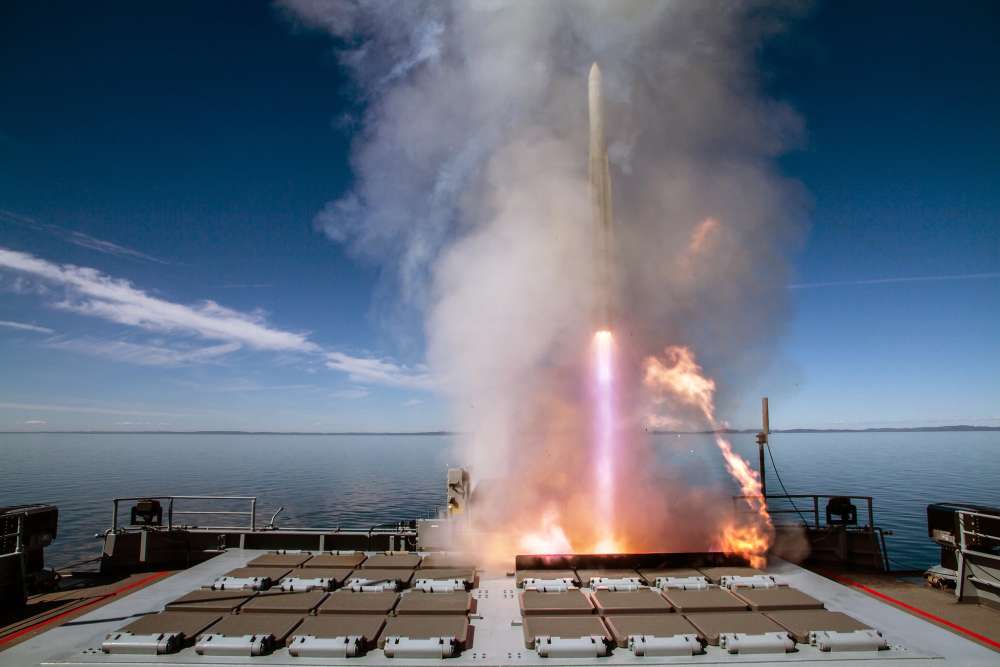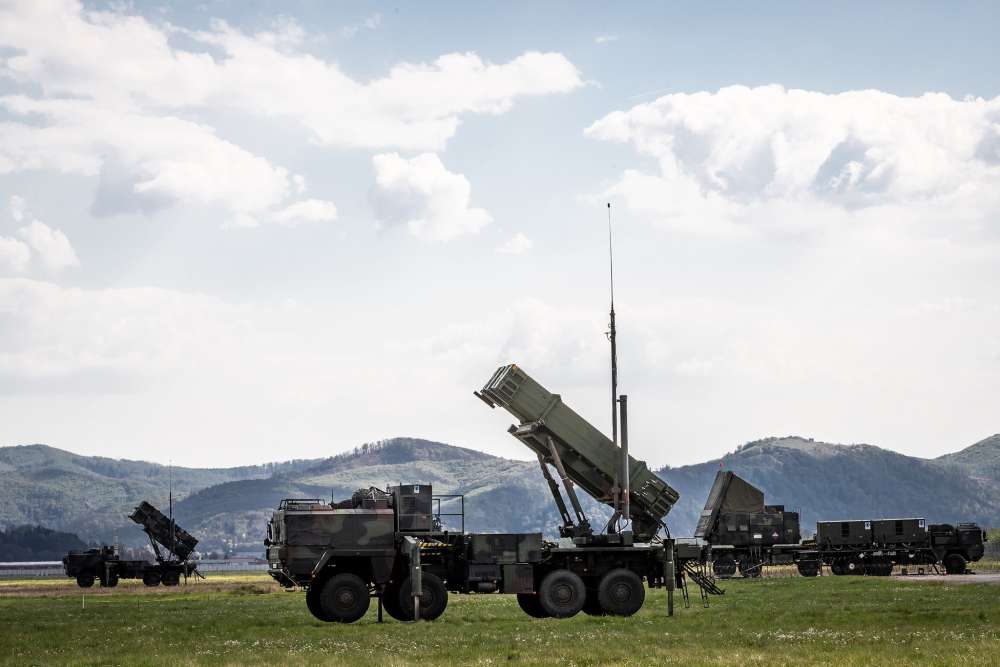“To Really Modernize Its Armed Forces, Germany Needs a Long-Term Increase of the Regular Defense Budget”
The Sondervermögen was a necessary step on Germany’s long road toward becoming a European defense leader. Now, EU countries have a rare window of opportunity to integrate procurement and create a genuinely European defense base.
You have criticized the Bundeswehr’s intransparent and convoluted decision-making processes, especially with regard to procurement. What should be the priorities in reforming the military’s procurement process?
Defense procurement reform has been a pressing issue for years. Bureaucratic and ineffective processes have flummoxed successive German defense ministers long before the Zeitenwende. It will be one of the top issues in the new minister’s in tray. The past year has brought the point home: War has broken out in Europe and the speed with which German defense procurement is taking place seems out of step with the urgency of the current moment. It would be wrong, though, to point the finger at just one guilty party. The reality is that the German defense procurement system has been set up for peace time – and with the mindset of a trade power that puts a premium on applying public procurement regulation and competition rules to all sectors. But the blanket adoption of rules and requirements from civilian life often is not appropriate for regulating the processes, procedures and workflows inside the defense sector.
Last summer, the German Bundestag passed legislation to fast-track procurement and allow for exceptions to competition law. The legislation is limited to five years, but it will hopefully sow the seeds for more comprehensive reform in the years to come. One focus area for reforms should be the procurement system itself. Put in simple terms, Germany is struggling to spend the new defense money. There is also a need for more trained staff to manage the maintenance and necessary updates of new and more modern equipment. The defense ministry knows of these challenges and is promising betterment. But it’s a mammoth task.
Germany’s efforts to modernize and reorganize its domestic defense procurement system should also take into account the European dimension. An integrated European defense market and more coordinated European defense procurement have long been high on the list of European leaders’ political talking points, with little actual progress: EU member countries tend to prioritize their domestic political and industrial interests when they procure defense equipment. But the current crisis in Ukraine has opened a rare window of opportunity to integrate procurement at the European level. All countries suddenly need new equipment – to respond to increased demand or to replace what has been delivered to Ukraine. To make sure that their new kits are inter-operable, make use of economies of scale and forge a stronger European defense industrial base, EU countries should engage in joint procurement. In recent months, however, instead of investing jointly in the modernization of their armed forces, Europeans have been competing for access to obtainable capacities.
The European Commission has already proposed using financial incentives to encourage greater procurement cooperation. Now, the EU’s initiatives need political buy-in from member states and funding from the EU budget. This year’s review of the EU’s multiannual financial framework is an opportunity to allocate resources according to the Commission’s plans – and Germany should overcome its austere tendencies and take the lead.
» Put in simple terms, Germany is struggling to spend the new defense money. «
As an expert on defense policy you closely follow the debates around the so-called Sondervermögen, a special 100-billion-euro fund for the German army. Recently, you emphasized that the fund will not suffice for the needed modernization of Germany’s armed forces. What does it take to ensure that Germany’s defense is made fit for the future?
When Chancellor Scholz announced the Sondervermögen in February 2022, a lack of investment and ineffective spending patterns had left the Bundeswehr ‘bare.’ Germany had been lagging behind on its commitments to NATO capability for years. The feeling in Berlin was that the Bundeswehr needed everything – and urgently. The symbolic power of the 100-billion-euro-sum seemed appropriate given the enormity of the challenge that Germany faces. But over the past year the fund has lost some of its lustre, for several reasons.
First, military development and procurement timelines are long. Procurement processes are infamously bureaucratic, the stockpiles are depleted and defense-industrial production is down. Even a country that is committed to spending money fast will not be able to fill its arsenals quickly at the moment. That’s why one of Germany’s priorities should be to increase the capacity of German defense firms to produce a lot of equipment at great speed, to cover the equipment needs of the Bundeswehr as well as those of Ukraine.
Second, there are currently no guarantees that Germany’s regular defense budget will sustainably increase once the special fund runs out. But the country’s defense investment needs will likely grow even after the Sondervermögen has been spent. The idea behind the fund was to complement regular defense spending to fill major capability gaps. But the costs of procuring military equipment are higher than its asking price: upkeep, personnel, repair, and operating costs all require additional and ongoing expenses. Ammunition is another ongoing expenditure not covered by the special fund. What is more, the high inflation rates have already melted the promised 100 billion euro down to only about 85 billion. So some of the projects that are on the list of urgent priorities drawn up by the government in 2022 will also need to be financed by the regular defense budget.
Third, the special fund has an expiration date of five years. This makes it difficult to plan for the future. Defense procurement decisions are always guided by a mix of considerations: on money, delivery speed and the quality of equipment. All of these have implications for whether equipment is bought “off the shelf,” produced domestically or in cooperation with partners. Some German procurement priorities are straightforward – for instance, Berlin knew it needed to update its fighter jets to continue to participate in NATO’s nuclear-sharing arrangements, and it is politically committed to high-profile European capability projects like the Future Combat Air System (FCAS). But to rush spending only on long-standing domestic priorities would be a mistake. In order to modernize Germany’s armed forces, defense planners must, for instance, also look at investing in emerging technologies. If the Federal Government focuses its commitment on money spent – rather than on capabilities acquired – it risks misguided purchases.
The Sondervermögen was an important and necessary step; but it is no magic fix for Germany’s defense capability woes. To really modernize its armed forces, the country needs a long-term increase of the regular defense budget. This requires political contextualization: citizens might reasonably ask why 100 billion is still not enough to ‘fix’ German defense. But there is an opportunity here, too. The public scrutiny and debate that will come with higher spending could well be a boon and gradually lead to more robust public acceptance of defense investment in general.
How should Germany’s National Security Strategy relate to EU defense policy? Do you see potential for joint defense projects – and if so, where?
Together with France, Germany has taken a leadership role on two major European capability projects – the Main Ground Combat System (MGCS) and the FCAS. Both have for years been beset by delays and disagreements over which domestic industry should take the lead as well as work-sharing and technology. Recently, there was news of some modest progress. But these projects are simply too big to fail. This year, Paris and Berlin should break out of their current rut and overcome their defense-industrial jealousies. They should also look to rope in other European partners in their efforts. The MGCS is a prime example: It has been Germany’s declared aim to develop large multinational units around the Bundeswehr and Poland had long expressed an interest in joining the European battle tank project. But instead of cooperating with Berlin, Warsaw is now buying US tanks and planning to procure from South Korea in the future. Germany cannot afford more missed opportunities like this.
The European Defence Agency identified six so-called focus areas with the greatest potential for joint development and procurement: main battle tanks; soldier systems; anti-access/area denial and countering unmanned aerial systems; improved military mobility; defense in space; and patrol vessels. EU members have set themselves the goal of investing 35 percent of their defense budgets in cooperation projects. So far, however, this is not what’s happening: only 18 percent of all wartime defense investments are currently conducted in cooperation with other EU countries.
That is unfortunate. The EU’s power of political integration and its budgetary and regulatory tools could contribute to creating a genuinely European defense industrial base that could help modernize European arsenals, lessen the reliance on non-European providers and strengthen Europe’s ability to stabilize its own neighborhood. Germany’s National Security Strategy should include the recognition that today’s security challenges require investments not just at the national but also at the European level.
Key Points:
- EU countries should engage in joint procurement and create a genuinely European defense industrial base to modernize arsenals, lessen the reliance on non-European providers and stabilize the whole region.
- In order to modernize Germany’s defense capabilities, the country needs a long-term increase of the regular defense budget, exceeding the Sondervermögen.
- NATO’s long-term goal must be to build a strong and stable European pillar within the alliance – overcoming the current model of burden-sharing. A reliable and capable Germany is key to this change.
German Chancellor Olaf Scholz recently assured allies that Germany will beef up its military presence along NATO’s eastern flank. How do you see Germany’s role within NATO in the coming years?
Successive German governments have thought of Berlin’s role in NATO as that of an ‘inclusive’ convening power, one that prioritizes alliance cohesion and acts as an ‘honest broker.’ Germany is keen to maintain an image of professionalism and credibility and to project a readiness to mediate or resolve intra-alliance conflict. Often, this has been true. But other times, this self-image has been at odds with contentious German decisions that have undermined trust among its NATO allies. Examples are Germany’s support for the completion of the now-suspended Nord Stream 2 pipeline despite persistent opposition by the United States and Central and Eastern European allies, or Berlin’s continuous failure to uphold its pledge to spend two percent of its GDP on defense and the fact that it has been faulting on its capability commitments to the alliance.
Now Berlin is taking big steps in the right direction. The German government has attached great importance to the decisions NATO made at its Madrid Summit last summer and is committed to strengthening the alliance’s forward defense along its eastern flank. But Chancellor Scholz has also set a high bar by promising that Germany will take on “leading responsibility for the security of our continent” and expressed his ambition that Germany’s military must become “Europe’s best equipped.” Against these ambitions, our allies are questioning why there are still doubts over when (and for how long) Germany will reach the two-percent goal – especially since internal conversations in NATO are already moving on to a new goal of three percent.
The road to becoming a leading European defense power is still long for Germany. Even just fulfilling its existing NATO commitments and winning back the trust of its Eastern neighbors will require significant engagement from Berlin. And the likely return of the ‘China debate’ to NATO, driven mostly by Washington, will not make things easier for Germany. The long-term goal must be to build a strong and stable European pillar within the alliance. The last months have shown how much Europe’s defense still depends on military and political leadership from the United States. And as much as Europeans can be thankful for Washington’s role in the transatlantic response to Russia’s war of aggression, this dependence is not sustainable. NATO’s burden-sharing model must change – and a reliable and capable Germany is the key to that change.
Sophia Besch
Europe Fellow, Carnegie Endowment International Peace
Keep on reading

Germany Must Adapt Its Mindset on Nuclear Weapons
Russia’s war against Ukraine has stirred Germany’s nuclear debate. Now is the time for Berlin to rethink its nuclear policy – and the National Security Strategy should lay the groundwork.

Germany Needs a National Directive on Autonomy in Weapon Systems
The international effort to regulate autonomy in weapon systems via the United Nations in Geneva is stuck. It is time for Germany to develop and implement its own national directive – and foster regulatory processes in new fora.

Deutschland als Grundpfeiler europäischer Verteidigung
Der Ostseeraum ist das Brennglas der angespannten Beziehungen zwischen Russland und der NATO. Als koordinierender Verantwortungsträger sollte die Bundeswehr hier Führung übernehmen. Bestens dafür geeignet: Die Deutsche Marine.
